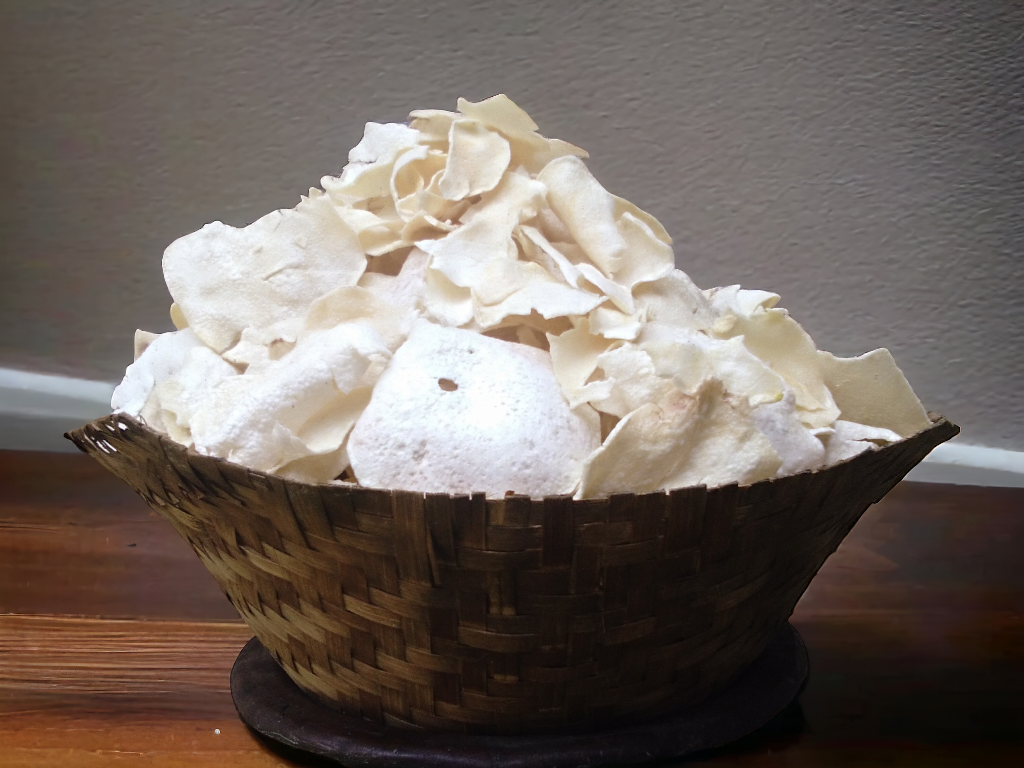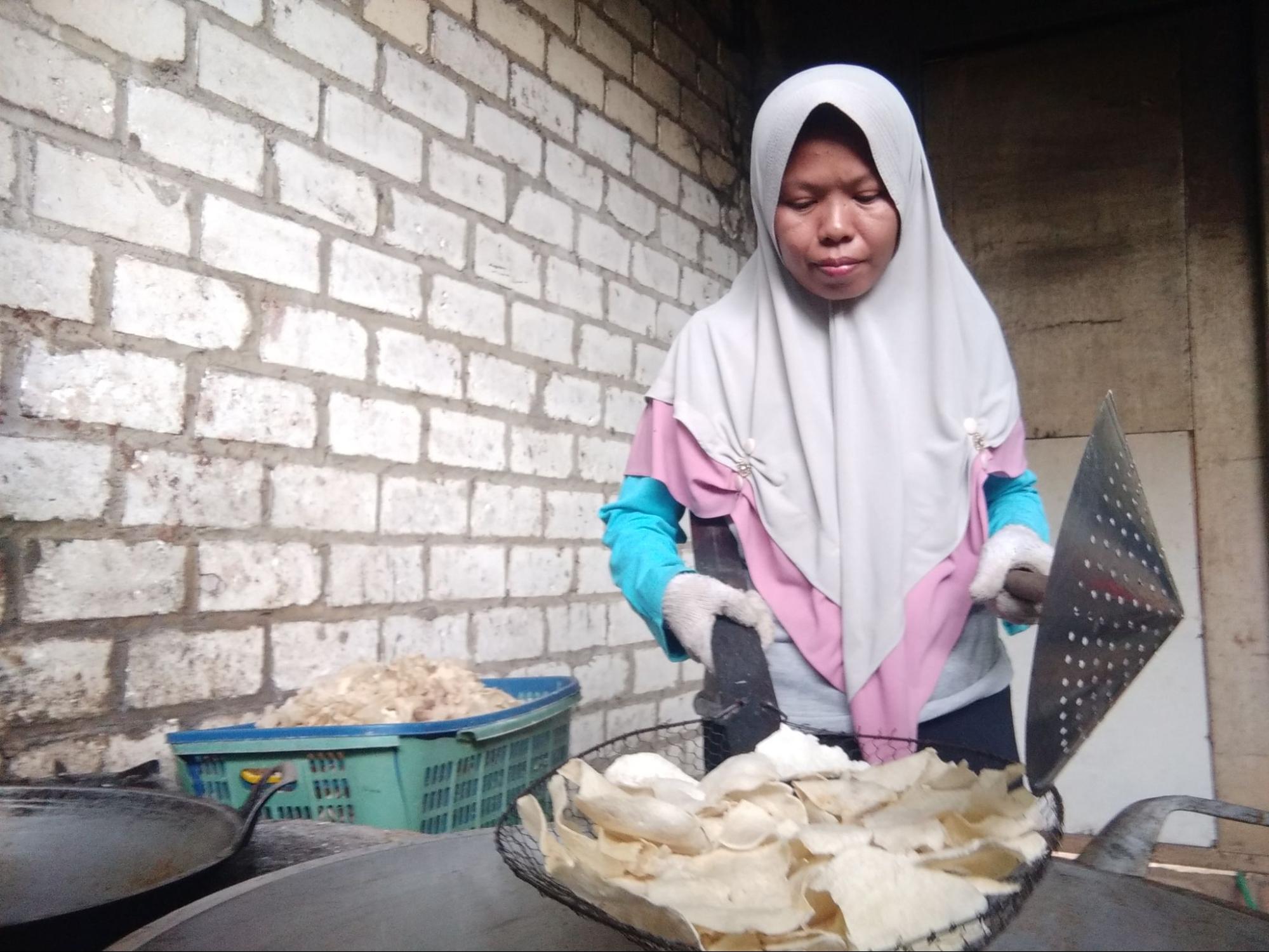Sholikah, a 32-year-old entrepreneur, has shown remarkable determination in establishing her culinary business, 'Monic Snack'. Her focus lies in creating snacks that not only taste good but are also made from local ingredients. One of her best-selling products is a snack made from Umbi Gadung or Kolape, a tuber native to Indonesia’s tropical regions. Although Umbi Gadung can cause dizziness if not prepared correctly as it contains the alkaloid dioscorin, Sholikah has mastered the process of turning it into a safe, nutritious and delicious snack.

Gadung Chips, one of Sholikah’s best-selling products.
Sholikah's snack business has grown, however her journey encountered a major setback when her husband became seriously ill, requiring extensive medical treatment. This financial strain led to a temporary shutdown of her business as resources were redirected to cover healthcare expenses and sadly her husband passed away. Faced with the loss of her husband and the business challenges that followed, Sholikah struggled to fulfill her family’s needs.
At the lowest point in life, Sholikah didn't give up. With support from the Wonder Women program, which provided a seed grant, she was able to restart her business. This funding helped her buy ingredients and cover marketing expenses, enabling her to expand her product distribution beyond Tuban, her hometown in East Java.
Thanks to her strategic efforts and resilience, Sholikah's business bounced back. She now supplies her products to 90 resellers in Tuban, East Java, and Rembang, Central Java, and has plans to enter additional markets in Bojonegoro and Blora Regencies. Her story is a testament to overcoming adversity with perseverance.
Sholikah's production process is based in her simple kitchen, where she and her team, including family members and a hired neighbor, turn cassava, gadung, corn, breadfruit, and bananas into snacks. Each cycle processes over 600 kilograms of these raw materials.

Sholikah made various snacks from local ingredients in her home kitchen.
Most of the ingredients come from Sholikah’s own 4,300-square-meter garden, where she practices intercropping. This method involves growing different crops together, which improves productivity and reduces failure risks. She also grows teak and bamboo for soil erosion control and carbon dioxide absorption. Additionally, her rice field embankments are planted with elephant grass for livestock feed. Her land produces significant yields, including five tons of cassava and 1.5 tons of corn annually.
Sholikah is committed to sustainability, evident in how she manages production waste. She repurposes cassava peel, corn husks, and other by-products as livestock feed, selling them to local farmers. This approach not only reduces waste but also supports local agriculture.
Her ability to navigate through life's difficulties while contributing to her community's environmental sustainability and economic well-being highlights Sholikah as a role model of innovation and resilience.
-
Wonder Women is a women’s economic empowerment program with a focus on creating climate-resilient and sustainable businesses. This program is made possible through a partnership between Kopernik and Women’s Earth Alliance.


